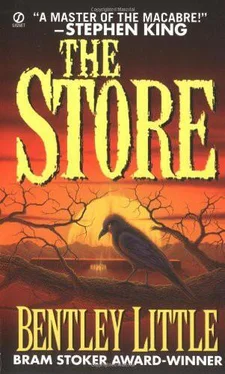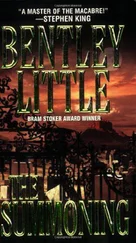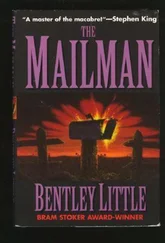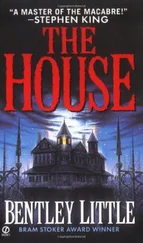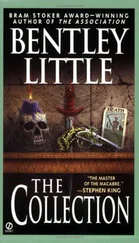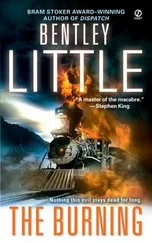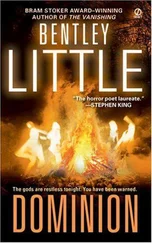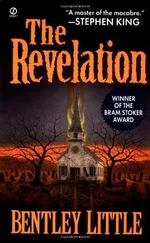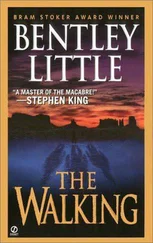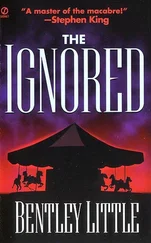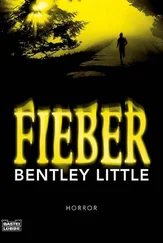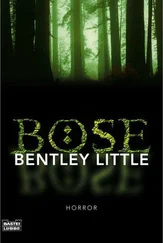"Bullshit," Bill repeated. He started toward the door. "You'll hear from my lawyers. My daughters are not working here and that is that."
"That is _not_ that, Mr. Davis." The personnel manager's voice was authoritative, edged with steel, and Bill stopped, turned around. "The contract we have with your daughters is legally binding."
"A court will determine that."
"A court _has_ determined that. Ventura versus The Store, Inc. The case went all the way to the Supreme Court in 1994. We won in a five-two ruling." Mr. Lamb fixed him with a cold stare. "I can provide you with documentation if you wish." "Yes," Bill said. "I wish." He believed Mr. Lamb, was sure the personnel manager was telling the truth, but he still wanted to cause that little prick as much inconvenience as possible, even if it only meant making him hunt up some Xeroxed copies of a legal brief.
Mr. Lamb opened another drawer, withdrew a sheaf of stapled pages, handed them across the desk.
Bill walked over, took them.
"Local law enforcement authorities have always been willing to uphold the law," the personnel manager said. "Simply stated, the police could make your daughters work. I don't think either of us want that, now, do we?"
Bill did not answer. If Juniper had had an autonomous police force, he would have told the man to fuck himself. But the fact was that with the police department privatized and The Store controlling the purse strings, the police probably would do whatever the hell The Store ordered them to do.
"I think our meeting is done," Mr. Lamb said, smiling again. "Thank you for taking the time to stop by. Have a nice day."
Bill looked it up online when he got home: Ventura versus The Store, Inc.
It had gone down exactly the way Lamb said it had.
He performed an online search for all court cases in which The Store was either plaintiff or defendant and came up with a whopping six hundred and fifty four suits that had gone to trial.
No wonder the country's legal system was so backed up. The Store was hogging half of the available court time.
He did not have the time right now to read the details of each suit, so he simply called up a list of the cases that The Store had won.
The company had triumphed in all six hundred and fifty-four.
An asterisk next to the case numbers indicated that twelve others besides Ventura had gone all the way to the Supreme Court.
How could he hope to fight something like that? He exited Freelink, turned off his PC, and walked dejectedly out to the kitchen. Shannon was lying on the living room carpet, watching a talk show. She looked up. "Do I still have a job?" she asked meekly.
Bill nodded silently, not trusting himself to answer without going on the attack.
"Told you so," Sam said from the hallway entrance.
He looked over at her, wanting to hit her, wanting to slap her.
She smiled.
TWENTY
1
An hour before the council meeting, Bill and Ben stopped by Street's house.
They did not play chess this time, merely drank beer.
According to Street, Doane was MIA, hadn't been seen for nearly a week.
And Kirby Allen, over at the Paperback Trader, was going to close his doors at the end of the month. Apparently, no one was interested in buying or trading used books anymore when they could get new books so cheaply at The Store.
"Whole fucking downtown's disappearing," he said.
"What about Doane?" Bill asked. "What do you make of that? It's not like him to just . . . vanish."
"Like Jed McGill?" Ben said softly.
All three of them were silent, the only sound the chirping of crickets somewhere outside.
Street started to say something, cleared his throat, then loudly slurped his beer, mumbling something incoherent.
"You think Doane's dead?" Bill asked.
Ben shrugged. "You think Jed's dead?"
"I don't know."
"What are we talking about here?" Street shook his head, slammed his beer can down on the coffee table. "You honestly think that in the United States of America, in the 1990s, workers at a discount store killed a grocer and a record shop owner so they could make a few more bucks?".
"That doesn't sound as implausible as you probably thought it would," Ben said.
"No," Street admitted. "It doesn't."
Bill turned toward him. "Have you been approached at all? Has anyone from The Store pressured you to quit or tried to put you out of business?"
"No."
"Not even any hints?"
"Maybe I'm just too dumb to get them."
"Your place might burn down," Ben said. "Like Richardson's."
"Thanks for the encouraging words."
They were quiet again.
"You realize what's happening?" Ben said finally.
"What?"
"For all intents and purposes, there's only one place to shop anymore. And I don't know if you've noticed, but our choices in products have been considerably narrowed since The Store's early days."
"I've noticed," Bill admitted.
"I call it corporate fascism." Ben stared into his beer can. "Juniper's turning into a company town, almost completely dependent on The Store, not only for food and merchandise, but jobs. We could shop somewhere else, we could drive to the Valley or Flagstaff or Prescott, but we're lazy and we don't. So we're forced to buy whatever The Store offers. The Store determines how we eat, how we dress, what we read, what we listen to, almost every aspect of our lives."
Bill shook his head. "It's not quite that bad."
"Isn't it?"
Street snorted. " 'Corporate fascism'? The Store's more like a corporate vampire. It's sucking this town dry and growing stronger from it."
Bill sighed. "So what are we going to do?"
Ben glanced at his watch, finished off his beer. "We're going to go to the council meeting." He turned toward Street. "You coming?"
Street nodded. "Yeah. Count me in."
"No," Bill said, "I mean what are we going to do about The Store?"
"What can we do?" Ben asked.
Street smiled wryly. "Pray?"
"Not funny," Bill said. "Not funny at all."
The council meeting was once again sparsely attended and, until the end, routine and uneventful. Then Hunter Palmyra, in a low, subdued delivery that was totally unlike his usual voice, made a motion to add an item to the agenda.
"I would like to make a motion that we add the following agenda item under 'new business,'" Palmyra said. He cleared his throat and read from a paper in his hand. " The council hereby revokes Resolution 84-C, which grants an open ended license to participating food growers to enable them to sell their goods at a so-called farmer's market. It has been found that said farmer's market violates county and local health regulations in regard to the sale of foodstuffs and does not legally constitute a business under Juniper definitions because of the absence of a single proprietor.' " Palmyra looked up at the mayor, nodded.
The councilman was unable to look toward the audience, Bill noticed. He was too embarrassed and ashamed to face the public.
"They can't get rid of the farmer's market," Street said, shocked.
"They can and they will," Ben told him.
"We shop there, too," Bill said. "That's where Ginny buys most of our vegetables. They can't expect us to buy everything at The Store. Their produce is even worse than Buy-and-Save's was."
The council voted to add the item to the agenda.
"They're trying to legislate away competition," Street said. "They're trying to outlaw small businesses in this town." He looked from Ben to Bill.
"I'm going to go up there and give those assholes a piece of my mind."
"All right," the mayor said. "I don't think we need any discussion on this matter. Let's vote. A motion has been made to revoke the license for the so called farmer's market. Do I hear a second?"
Читать дальше
